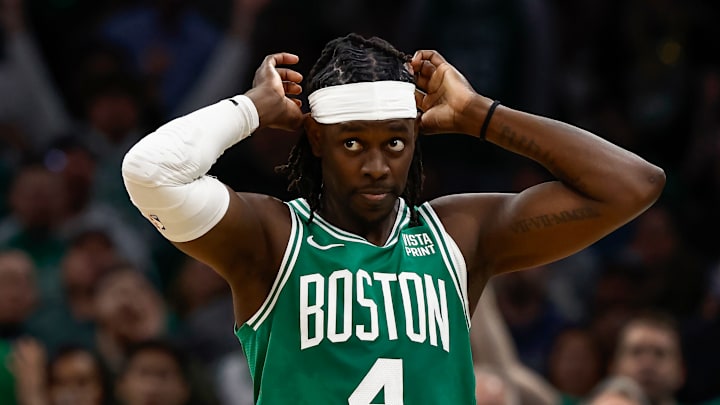In a surprising blockbuster, the Portland Trail Blazers have traded Anfernee Simons and two second-round picks to the Boston Celtics for Jrue Holiday. Next on the trade agenda should be dumping Deandre Ayton.
The Holiday trade is a testament to their confidence in their young core, who finished last season so strongly and proved they are ready for increased expectations. But the question is, how high should that bar actually be?
The Blazers' Jrue Holiday deal is puzzling
Holiday is an upgrade from Simons and a much better fit in their backcourt and the identity Portland intends to establish. That said, Holiday still isn't the superstar they need to put them into that tier of contenders out west.
By acquiring the 35-year-old guard, it's clear that the Blazers want to make a playoff push in 2026. That ambitious goal has suddenly become more realistic, but the offseason is just beginning, and Portland needs to continue to make trades to end that four-year postseason drought.
There are more reasons to like this trade for the Blazers than many might think. However, the cons outweigh the pros regarding their long-term outlook, which should have been the priority for a team seemingly years away from contention.
Portland now owes its trio of Holiday, Ayton, and Jerami Grant a total of $100 million this upcoming season -- a substantial price to pay for three veterans with a combined two All-Star appearances on their resume. This glaring problem caps Portland's ceiling and risks long-term purgatory.
Now that they have reacquired Holiday and intend to keep him around, Ayton or Grant is left as the odd man out. And since Grant is much more challenging to trade, given that he's on one of the worst contracts in the league, all signs now should point to Ayton.
This is not to say the Blazers should explore Grant trades; they absolutely should. But the grim reality is that he's a negative asset that teams likely won't want to take on without significant draft capital attached. Draft picks have suddenly become much more valuable now that Cronin has hindered the Blazers' long-term financial flexibility to make a playoff push, especially under the new CBA.
Trading Deandre Ayton would help make sense of it all
The fact that this is a half-in move is puzzling. It's great that the Blazers didn't sacrifice their young core, but it's almost like they either should have been more aggresive in pursuit of an actual 1a piece or not made a move at all. They could have let Simons walk next summer if this was the best deal they could have gotten for him.
It doesn't make sense currently, but to Cronin's credit, he did fleece Deni Avdija and Toumani Camara in his prior trades. We want to give him the benefit of the doubt, but it's hard to see what direction this is headed.
One silver lining is that this move has quietly cleared the path for Portland's core in the backcourt. Scoot Henderson and Shaedon Sharpe should get more touches since Holiday doesn't command the ball as much as Simons to be effective. Henderson also has a clear path to taking over the starting role in the coming seasons (which, ideally, would have been next season, but at least there's a viable pathway instead of them extending Simons).
The next step is to clear the runway at the center position. This trade made it crystal clear who Portland's core pieces are and the defensive-minded identity they are establishing -- two things that Clingan will be a massive part of.
Whether it's using Ayton as a salary filler to land that star they still need or simply trading him to clear the path for their All-Rookie, the half-in Blazers need to pick a direction.
